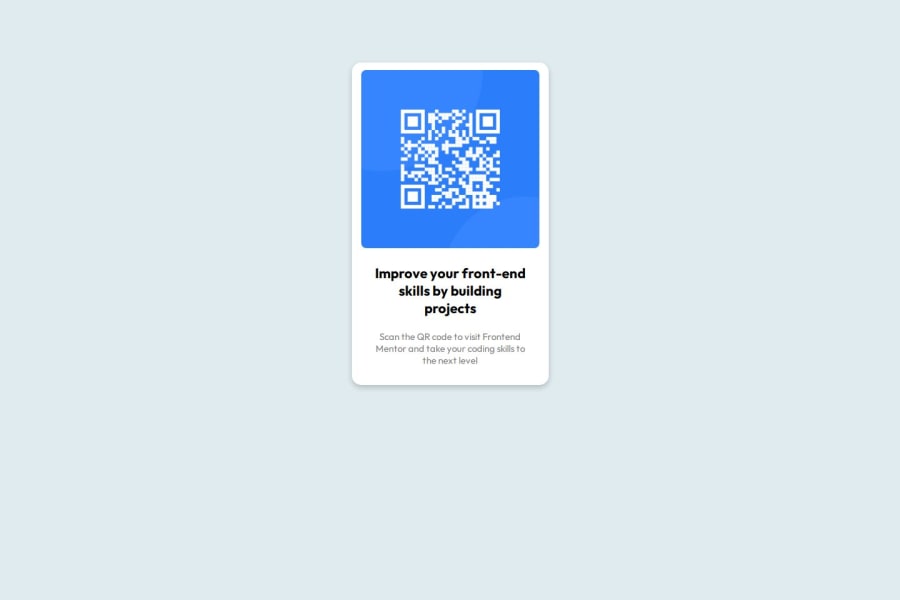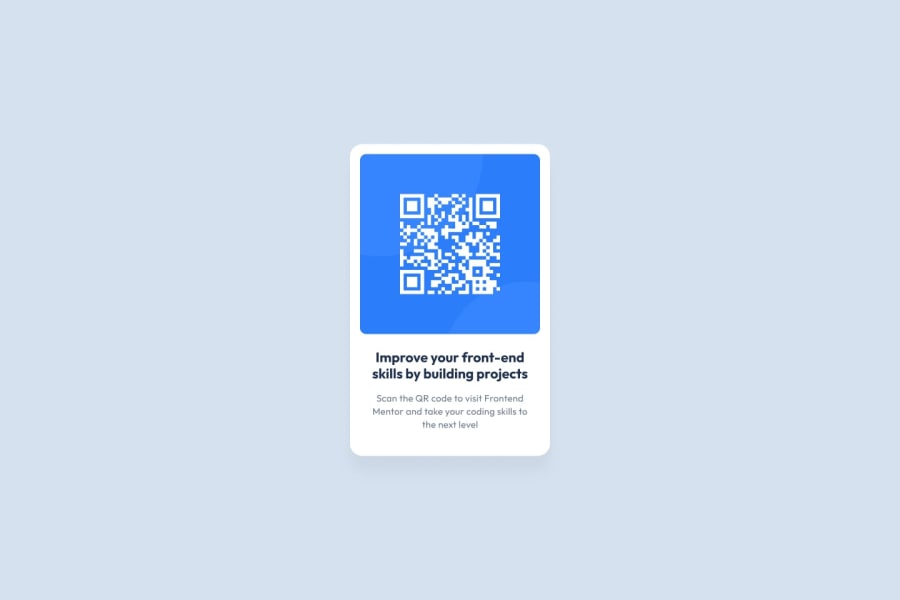
Submitted 5 months ago
Flexbox, box-shadow, flex-direction: column: margin: 0 auto;
P
@vlimbo
Design comparison
SolutionDesign
Community feedback
Please log in to post a comment
Log in with GitHubJoin our Discord community
Join thousands of Frontend Mentor community members taking the challenges, sharing resources, helping each other, and chatting about all things front-end!
Join our Discord
